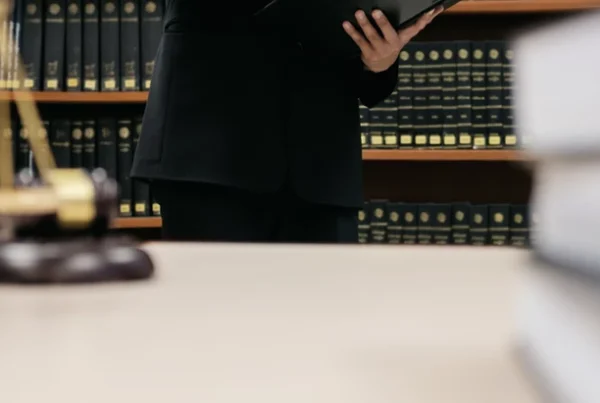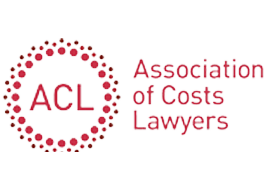Overview
2020 has been a year without parallel. Whilst every year typically has defining moments, 2020 has produced so many paradigm shifting events that have affected the entire world. In these challenging times, those in the legal costs arena have been able to adapt quickly to support our clients, colleagues and opponents.
As a result of the hard work of the court staff and the ability to adjust shown by legal costs professionals, the courts were able to make a successful transition to remote video and telephone hearings, which are set to become of greater use in the Senior Courts Costs Office even after the coronavirus pandemic has passed.
The timely arrival of electronic filing in January 2020 meant that few hearings at the SCCO were adjourned despite some administrative delays, and the general consensus has been that detailed assessment hearings have worked much more efficiently where the receiving party has filed an electronic bundle of papers.
Overall, the legal costs industry was able to navigate with agility through a pandemic that has changed the way we live and how we connect with each other, at least temporarily.
Against the backdrop of the pandemic, 2020 produced some important procedural revisions in respect of qualified one-way costs shifting (QOCS) and the costs budgeting and management process, as well as a range of notable decisions on QOCS, costs budgeting, indemnity basis costs, hourly rates and retainers.
To round-up 2020 in legal costs, we have selected one key costs decision from each month over the last year to revisit, although our extended version includes further decisions that we were unable to fit in, plus the procedural revisions of note.
January
Wickes Building Supplies Ltd v Blair (No.2 : Costs) [2020] EWCA Civ 17
The Court of Appeal ruled that QOCS covers appeals where it applies to the first instance proceedings. Lord Justice Baker interpreted the word “proceedings” in rule 44.13 as including both first instance proceedings and an appeal. He said this interpretation applied even where the court was dealing with a second appeal. Giving the ruling of the court, Baker LJ said “if a claimant’s access to justice is dependent on the availability of the QOCS regime, that access will be significantly reduced if he is exposed to a risk as to the costs of any unsuccessful appeal which he may bring or any successful appeal a defendant may bring against him”.
February
Lejonvarn v Burgess and Burgess [2020] EWCA Civ 114
The Court of Appeal ruled that the High Court was wrong to award costs on the standard basis and instead should have awarded costs on an indemnity basis following an unsuccessful professional negligence claim. The trial judge had applied the wrong test by considering that the claims were not hopeless; rather, he should have considered whether the respondents “knew or ought to have known that their claims were speculative/weak and therefore likely to fail”. The respondents’ failures to accept and beat the appellant’s Part 36 offer was a separate and standalone element of conduct that was out of the norm and separately justified an order for indemnity costs. The court also considered the gap between the appellant’s costs budget of £415,000 and her actual “eyewatering” costs of £724,265.63 and commented that “it could not affect whether or not the court should make an order for indemnity costs”.
March
DSN v Blackpool Football Club Ltd (Rev 1) [2020] EWHC 670 (QB)
The defendant flatly refused to engage in ADR because it believed it had a strong defence and because “no purpose would be served by any form of ADR”. The claimant beat its own Part 36 offer made in December 2019 and would have, therefore, been entitled to costs on the indemnity basis from the date of expiry of that offer. However, instead the claimant was awarded costs on the indemnity basis from 25 February 2019, being the date on which the defendant refused to attend a joint settlement meeting.
April
Ho v Adelekun [2020] EWCA Civ 517
The Court of Appeal held that a QOCS protected claimant in a personal injury matter was liable to have adverse costs set off against the costs order in her favour in the proceedings generally. The issue was whether a losing defendant in a QOCS protected personal injury case could set off against the costs of that action the costs order made in her favour (but on the face of it unenforceable) in a fixed costs/not fixed costs dispute in which she was successful. The Court of Appeal said the defendant could, holding that it considered itself bound by its own decision in Howe v Motor Insurers’ Bureau (No 2) [2017] EWCA Civ 2523. The Court of Appeal has since urged the Civil Procedure Rule Committee to consider preventing defendants setting off costs in cases covered by QOCS. It also granted the claimant permission to appeal to the Supreme Court.
May
Utting v City College Norwich [2020] EWHC B20 (Costs)
Master Brown concluded that an ‘underspend’ was not a good reason to depart downwards from a costs budget. However, he emphasised that there was a clear and obvious distinction between an ‘underspend’ and a situation where there was, at the very least, substantial non-completion of a budget phase. He found that, “at the risk of stating the obvious”, it would be unjust for a receiving party to receive the full amount of a budgeted sum in circumstances where only a modest amount of the expected work had been done.
June
Shulman v Kolomoisky and Bogolyubov [2020] EWHC B29 (Costs)
The second defendant had placed a value of US$500 million on the claim. Master Rowley commented that the length of time since the guideline hourly rates were reviewed “has led to them becoming much maligned”. He observed that, despite the receiving party’s solicitors being located in Canary Wharf (Outer London), the presence of firms such as Skadden and Clifford Chance as well as many multinational financial institutions led to the conclusion that rates equivalent to those found in the City were more appropriate. Master Rowley also observed that litigation can command City rates in appropriate circumstances, guideline hourly rates are not intended to replace a more thorough consideration of appropriate hourly rates in detailed assessments and, in substantial claims, guideline rates are barely even a starting point.
July
Lexlaw Ltd v Zuberi [2020] EWHC 1855 (Ch)
The High Court ruled that a damages-based agreement can lawfully require a client who prematurely terminates the agreement to pay the solicitor for the time and disbursements incurred to that point. His Honour Judge Parfitt, sitting as a High Court judge, said Parliament would have been explicit had it intended lawyers not to be able to recover any fees on termination. The Court of Appeal has granted permission to appeal.
August
Global Energy Horizons Corporation v The Winros Partnership [2020] EWHC B27 (Costs)
Master James ruled three CFAs unenforceable for having the potential to lead to a claim for a success fee exceeding 100%. Each agreement included an Advance Fee of CAN$315,000, £1,000,000 and £300,000 respectively that would be retained win or lose, although credited against the fees due under the CFA in the event of a win. The CFAs were poorly drafted and said two conflicting things. They stated that the Advance Fee would be credited against future billing, but they also stated that it would be kept by the defendant win or lose. The latter was fatal to the CFAs. The Advance Fee meant that a final bill would have never been raised for lower than the amount of the Advance Fee, even if the matter had settled early when the time spent, plus success fee and disbursements came to less than the Advance Fee at the time. As a result, the CFAs breached section 58(4) of the Courts and Legal Services Act 1990 and were rendered unenforceable. It is understood the defendant has sought permission to appeal.
September
PLK & Ors [2020] (Court of Protection) EWHC B28 (Costs)
Master Whalan ruled that appointed deputies can recover hourly rates in the Court of Protection at 120% of the 2010 guideline hourly rates. Having considered calculations based upon inflation, salary evidence and other commercial factors, Master Whalan determined that, with immediate effect, “if the rates claimed fall within approximately 120% of the 2010 GHR, then they should be regarded as being prima facie reasonable”. Master Whalan continued “this approach can be adopted immediately and is applicable to all outstanding bills, regardless of whether the period is to 2018, 2019 or 2020 or subsequently”.
October
Belsner v Cam Legal Services Ltd [2020] EWHC 2755 (QB)
The High Court ruled that personal injury law firms need their clients’ informed consent to the deductions that will be made from their damages for outstanding costs, even if that liability is voluntarily capped when it falls due. It was the first time a court has had to decide whether a solicitor seeking to rely on CPR 46.9(2) has to show that the client gave informed consent to paying the solicitor more costs than it could have recovered from another party. The firm is seeking permission to appeal.
November
Waterfield and Ors v Dentality Ltd and Ors (No2) (County Court at Oxford, 13th November 2020)
The claimants’ application for a group litigation order had been refused on the basis that it was inadequate and premature, and the defendants sought their costs of the application. The claimants accepted that a costs order should be made against them but said QOCS applied and so the order should not be enforceable without the permission of the court. The defendants argued that no claim form had been issued and so there were no proceedings and QOCS did not apply. The question before the court was whether the word ‘proceedings’ in CPR 44.13 included claims which have not yet been issued. The judge found no reason why it should have a different meaning to the general definition contained in rule 7.2, which says “proceedings are started when the court issues a claim form at the request of the claimant”. It was held that QOCS did not apply to the pre-issue application.
Final word
Be sure to keep an eye out on our page for legal costs news throughout the remainder of this year, along with the appeals that will potentially be heard in 2021.
If you require advice or assistance with legal costs, please do not hesitate to get in touch with us using the contact details below.
E: info@athenelegal.co.uk T: 020 7459 4843






